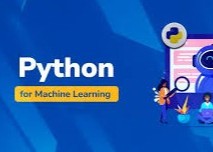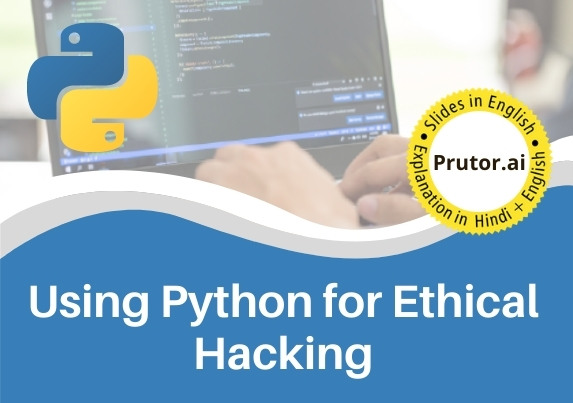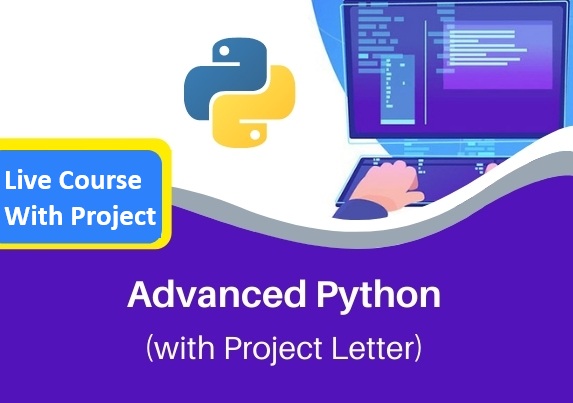- Introduction
In this lesson, you will learn about the process of programming, which involves different steps. This will give you a brief introduction to programming.
- The Programming Cycle for Python
In this lesson, you will learn about the programming cycle of Python, which includes different steps. Then you will learn about the Python IDE that is to be used and the I Python shell.
- Interacting with Python Programs
In this lesson, you will learn to write simple codes or programs to read some value from the user or print some computed value. In other words, you will learn to interact with some easy Python programs.
- Elements of Python
In this lesson, you will learn about the elements of Python program or you can say, the parts of the Python Program. Then you will also learn about the Data types in Python
- Type Conversion
In this lesson, you will learn about Type Conversion or Type Casting. You will also learn to convert types or perform typecasting Python.
- Expressions
In this lesson, you will learn about the expressions, particularly different types of operators that are available in Python programming language. You will also learn about variables and Identifiers.
- Assignment Statement
In this lesson, you will learn about the assignment operators, assignment statements and comments in Python.
- Arithmetic Operators
In this lesson, you will learn about the Arithmetic Operators in Python, which are Binary Operators, Unary Operators, and // Operator
- Operator Precedence
In this lesson, you will learn about the operator precedence in Python.
- Boolean Expression
In this lecture, you will learn about the Boolean Expressions, Relational Operators, Logical Operators and Complex Expressions in Python.
- Conditionals
In this lesson, you will learn about the conditional statement in Python, which is popularly known as the if-else statement, its working, and execution. You will also learn about the importance of Indentation in writing conditional codes.
- Conditionals (Continued)
In this lecture, you will continue to learn about conditional statements. You will learn about the nested-if statement and Elif statement in Python along with working example.
- Expression Evaluation
In this lecture, you will learn to evaluate the expressions in Python, the short circuit evaluation method, three factors for expression evaluation.
- Float Representation
In this lecture, you will learn about floating point representation in more detail along with the cautions about using floats and comparing these floats.
- Loops
In this lesson, you will learn about the purpose and working of loops and then you will learn about the While loop including its working.
- Loops (Continued)
In this lesson, you will continue to learn about some terminologies associated with Loops followed by the concept of Loop invariant and the common mistakes are committed by the programmers.
- For Loop
In this lesson, you will learn about the important function called as range() in Python, then you will learn about the For loop and its working with the help of an example.
- Nested Loops
In this lesson, you will learn about the Nested loops in Python. A Nested Loop is nothing but a loop within the loop. You will also understand the working of a Nested loop with the help of examples.
- Break and Continue
In this lesson, you will learn about the Break and Continue keywords in Python. You will also learn about the working of Break and Continue statements with the help of examples.
- Function
In this lesson, you will learn about the Functions, why functions are needed and why functions are used.
- Parts of A Function
In this lesson, you will learn about the different parts of a function. Then you will learn about function call in Python Programming.
- Execution of A Function
In this lesson, you will learn about the execution of the function, and what a Stack is.
- Keyword and Default Arguments
In this lesson, you will learn about the Keyword Arguments and the Default Arguments in Python Programming.
- Scope Rules
In this lecture, you will learn about the scope of names of the variables in Python Programming. You will also learn about the scope rules in case of variables, functions etc. and Global Variable.
- Strings
In this lesson, you will learn about the most important topic in Python Programming, which is Strings. Then you will also learn to find the length of the string and perform Concatenation and Repeat operations in it.
- Indexing and Slicing of Strings
In this lesson, you will understand the concept of Indexing and Slicing of the Strings. You will learn these with the help of examples.
- More Slicing
In this lesson, you will continue to look at Slicing in the more detailed manner with the help of an example.
- Tuples
In this lesson, you will learn about another kind of datatype in Python Programming which is known as Tuple.
- Unpacking Sequences
In this lesson, you will learn about unpacking the sequences in Python Programming. The examples of Sequences are Strings and Tuples.
- Lists
In this lesson, you will learn about one of the most useful datatypes in Python Programming, known as List A List is nothing but an ordered sequence of values.
- Mutable Sequences
In this lesson, you will learn about the mutable and immutable types of sequences in Python Programming.
- List Comprehension
In this lesson, you will learn the concept of list Comprehension, which is a concise way to build the list in Python programming.
- Sets
In this lesson, you will learn about another kind of sequences in Python programming, which is known as Sets. Sets are nothing but an unordered collection of elements with no duplicate elements.
- Dictionaries
In this lesson, you will learn about the most used datatype in Python, which is known as Dictionary, which is an unordered set of Key: Value pairs.
- Higher Order Functions
In this lesson, you will learn about higher order functions. Python allows you to treat functions as first-class Objects. Then you will also learn about the Lambda Expressions.
- Sieve of Eratosthenes
In this lesson, you will look at the program to generate prime numbers with the help of an algorithm given by the Greek Mathematician named Eratosthenes, whose algorithm is known as Sieve of Eratosthenes.
- File I/O
In this lesson, you will learn about the file input and output operations in Python Programming. Files in computer represent persistent storage, which means that any data you write to the file remain available even after the program exists.
- Exceptions
In this lesson, you will learn about the Exceptions in Python Programming. Exceptions are the way of Python to tell the user that something unexpected has happened.
- Assertions
In this lesson, you will learn about Assertions in Python. An assertion is a way of validating an assumption or a condition.
- Modules
In this lesson, you will learn about the modules in Python. Python allows you to keep the definitions in a file and use it in a script or an interactive instance of the interpreter. This file is known as the module.
- Importing Modules
In this lesson, you will learn to import some specific functions from a module and the use of _main_ in Modules in Python Programming.
- Abstract Data Types
In this lesson, you will learn about the abstract data types and ADT interface in Python Programming.
- Classes
In this lesson, you will learn about the most important concept of Python programming, which is Classes. You will learn about a class definition and other operations in the classes.
- Special Methods
In this lesson, you will learn about some special methods in Python programming such as _init_, _str_, comparison methods, and Arithmetic methods etc.
- Class Example
In this lesson, you will understand the concept of classes in Python with the help of an example.
- Inheritance
In this lesson, you will learn about the important Object Oriented Programming Concept, which is known as Inheritance.
- Inheritance and OOP
In this lesson, you will understand the concept of Inheritance in Python Programming, in the more detailed manner by taking an example.
- Iterators
In this lesson, you will learn about the most important statement in Python Programming, which is considered as the backbone of for...in statements. These are known as Iterators.
- Recursion
In this lesson, you will learn about Recursion, which is an important concept in Python Programming. When a function calls itself, this is termed as Recursion. You will also learn the properties of a Recursive Function.
- Simple Search
In this lesson, you will learn to perform a simple search in a given sequence in Python Programming.
- Estimating Search Time
In this lesson, you will learn to estimate the time taken by the program in Python Programming.
- Binary Search
In this lesson, you will learn to perform faster searching in the sequence with the help of Binary Search in Python Programming.
- Estimating Binary Search Time
In this lesson, you will learn to estimate the time taken by the Binary Search program in Python Programming.
- Recursive Fibonacci
In this lesson, you will understand the difference between recursion and iteration followed by implementing the recursive function to generate the Fibonacci series in Python Programming.
- Tower Of Hanoi
In this lesson, you will learn about the Tower of Hanoi problem and its solution by implementing the Recursive function in Python Programming.
- Sorting
In this lesson, you will learn about an important concept in Python Programming, which is known as Sorting.
- Selection Sort
In this lesson, you will learn about one of the sorting technique or a sorting algorithm in Python Programming popularly known as Selection Sort.
- Merge List
In this lesson, you will learn about merging the two lists which are sorted in Python programming.
- Merge Sort
In this lesson, you will understand the working and implementation of another popular sorting algorithm in Python programming known as Merge Sort.
- Higher Order Sort
In this lesson, you will learn about Higher Order Functions and how to use these higher-order functions to make a generic sorting function. Then you will also learn about Generic Selection Sort Function.
- Python Programming - Final Quiz
This is the final part in this course and contains a set of questions for your self-evaluation. The course will not be considered as completed successfully if you ignore this quiz.














